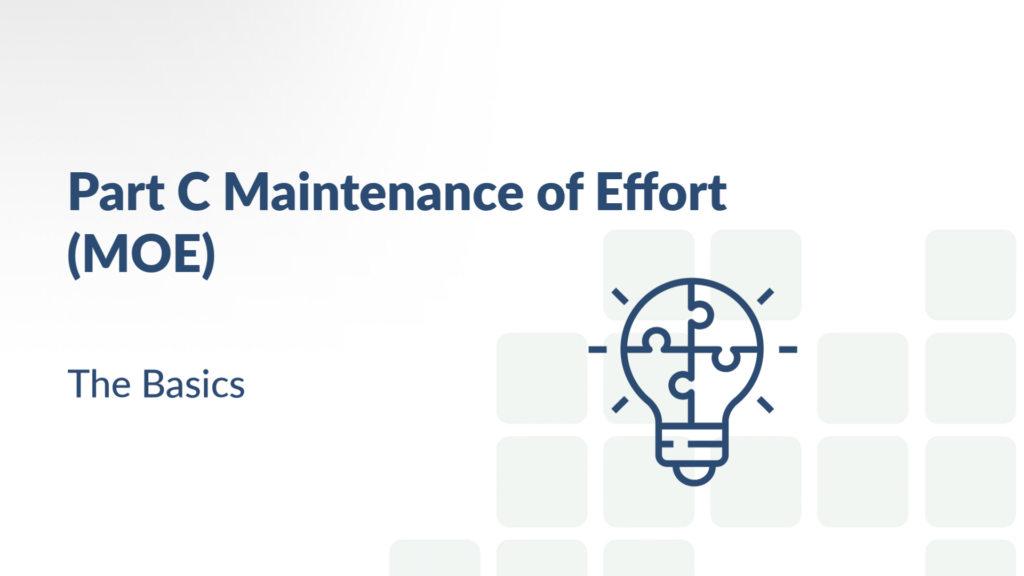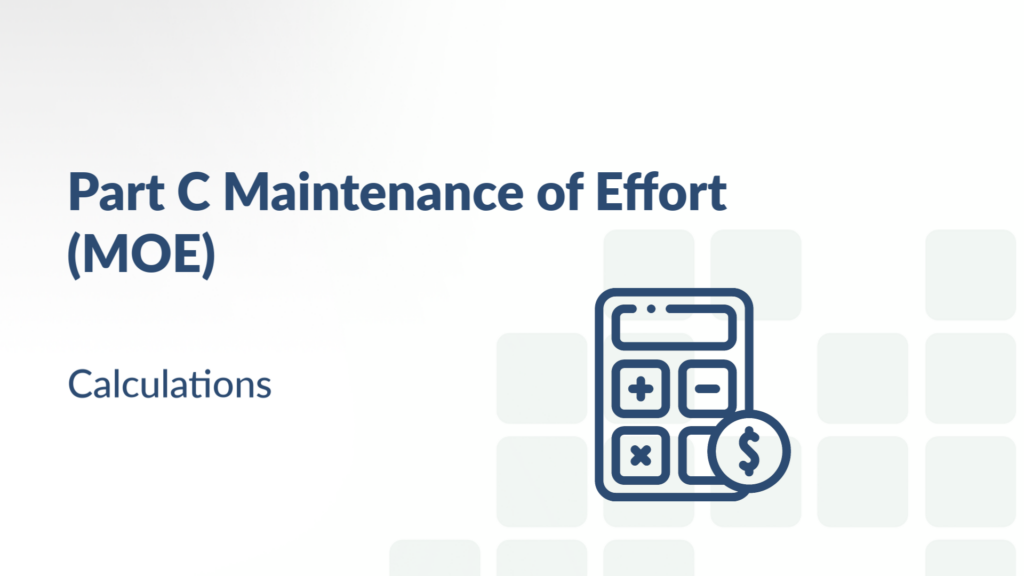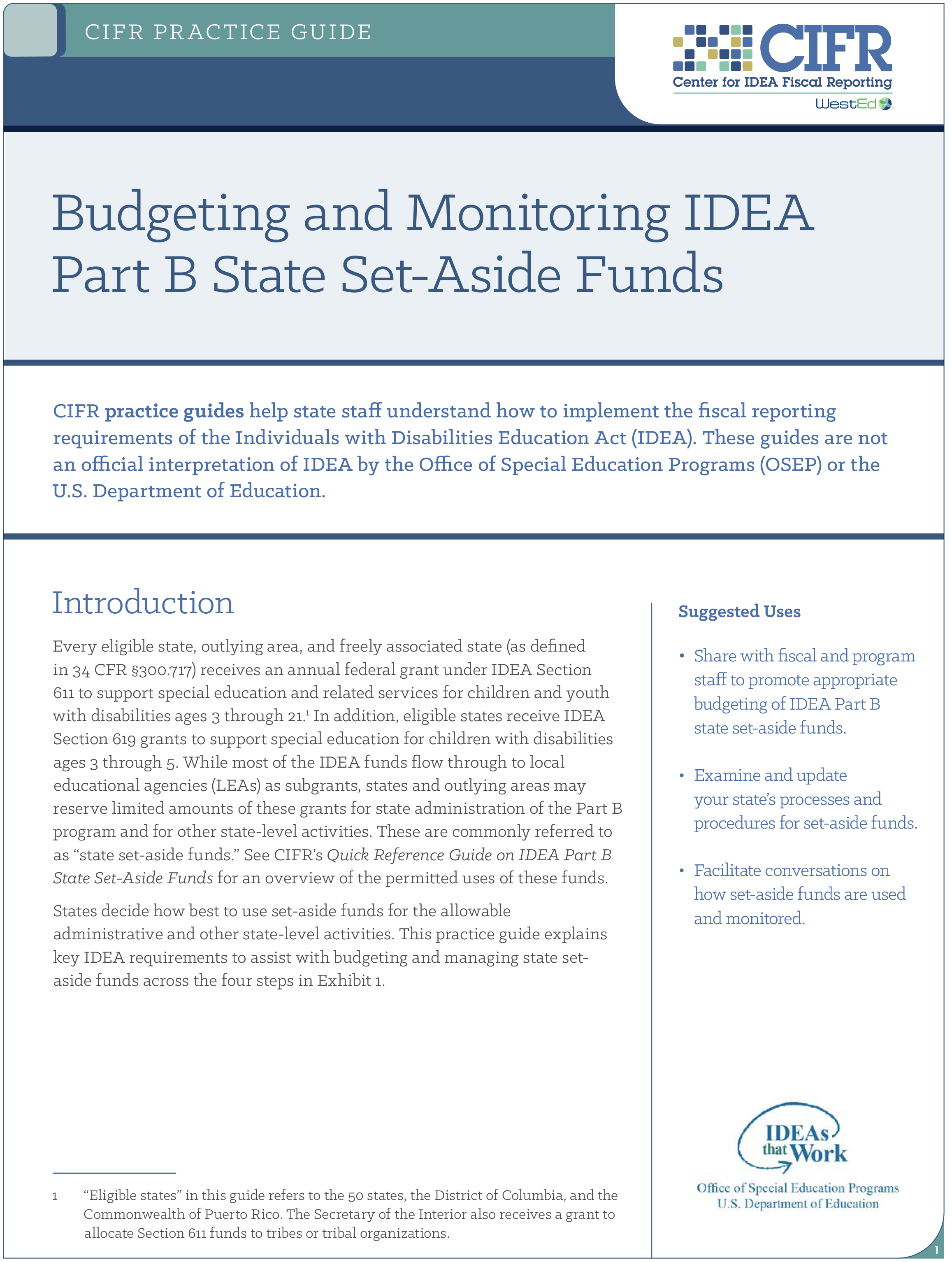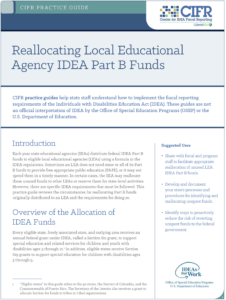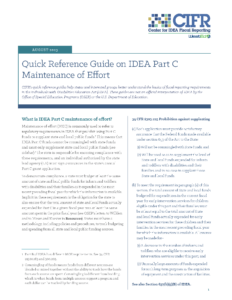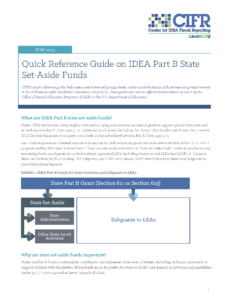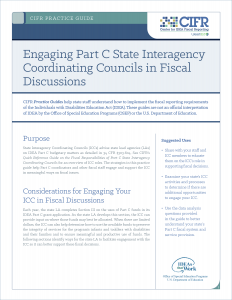TA On Demand videos from CIFR help ensure that technical assistance on IDEA fiscal topics is widely accessible.
IDEA Part C Maintenance of Effort: The Basics reviews the IDEA prohibition against supplanting requirement, also known as maintenance of effort. It describes the sources of funds included in MOE calculations, permissible allowances that can reduce level of effort, and consequences of not meeting the requirement. (8 minutes)
IDEA Part C Maintenance of Effort: Calculations details the two comparisons that states must make to show that they are meeting IDEA Part C maintenance of effort—budget-to-expenditure and expenditure-to-expenditure. (8 minutes)

